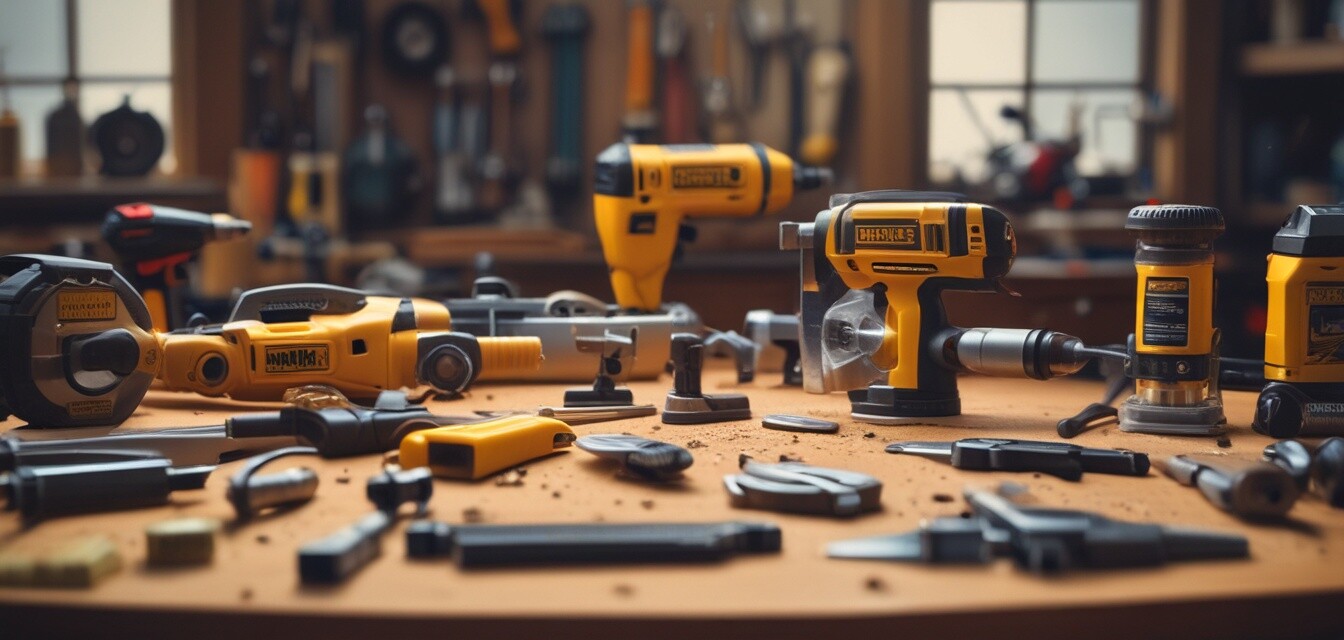
Safety innovations in the power tool industry
As the world progresses, so does the technology surrounding power tools. Safety is paramount in the construction and DIY industries, and manufacturers continually work towards integrating innovative features that protect users. This article explores the latest safety innovations being implemented across the power tool industry.
Key Takeaways
- Enhanced safety is a primary focus for power tool manufacturers.
- Innovations include smart sensors, automatic shut-off, and improved ergonomics.
- Staying updated on safety features can reduce workplace accidents.
- Investing in safer tools leads to better overall performance.
- Awareness of new products can help you select tools tailored to your needs.
Current trends in safety innovations
The power tool industry is busy inventing new technologies aimed at improving user safety. Here are some of the most notable trends:
- Smart technology: Sensors that alert users to potential hazards.
- Automatic shutdown: Tools will turn off if they detect misuse.
- Enhanced guarding mechanisms: Design improvements that protect users from moving parts.
- Ergonomic designs: Tools that minimize strain and increase grip to reduce accidents.
Smart technology in power tools
Smart technology has revolutionized many industries, and the power tool industry is no exception. The integration of smart sensors can monitor the performance of the tool, providing real-time feedback:
| Feature | Description |
|---|---|
| Impact detection | Sensors that detect unusual vibrations or impacts alert users to possible malfunctions. |
| Proximity warning | Alerts the user if they are too close to dangerous parts of the tool. |
| Real-time monitoring | Data collected on the tool's usage can help anticipate maintenance needs. |
Benefits of automatic shutdown features
Tools equipped with automatic shutdown features enhance safety significantly. If a tool detects misuse, it immediately powers down. This innovation increases user confidence and minimizes the risk of injury. Consider these benefits:
Pros
- Minimizes accidents caused by human error.
- Provides peace of mind for novices and experts alike.
- Can prolong the life of the tool by preventing damage from misuse.
Cons
- May lead to frustration when tools shut off unexpectedly.
- Can increase the cost of the tool, making it less accessible.
Improved guarding mechanisms
Guarding mechanisms play a critical role in user safety. Various improvements include:
- Blade guards that automatically retract when the tool is not in use.
- Anti-kickback features that prevent tools from unexpectedly recoiling.
- Flexible guards that do not inhibit the operation of the tool while still providing maximum protection.
Ergonomics and user comfort
Tools designed with ergonomics in mind can help prevent repetitive strain injuries. Here are some ways ergonomic designs contribute to safety:
| Design Feature | Benefit |
|---|---|
| Soft-grip handles | Reduce hand fatigue during extended usage. |
| Weight distribution | Balanced tools are easier to handle and less likely to cause injury. |
| Contoured designs | Fit the natural shape of the hand, reducing strain on muscles and joints. |
Wrapping up
Innovations in safety technology are enhancing the functionality of power tools significantly. By keeping abreast of these advancements, contractors and DIY enthusiasts can choose tools that not only improve their work efficiency but also keep them safe. For more insights on the best tools available, check out our Cordless Drills and Angle Grinders categories.
Tips for choosing safe power tools
- Research the latest safety features before making a purchase.
- Always read the user manual to understand how to operate tools safely.
- Follow manufacturer recommendations for maintenance to ensure safety performance.
- Consider investing in tools that have undergone rigorous safety testing.
- Stay informed about product recalls related to safety issues.
